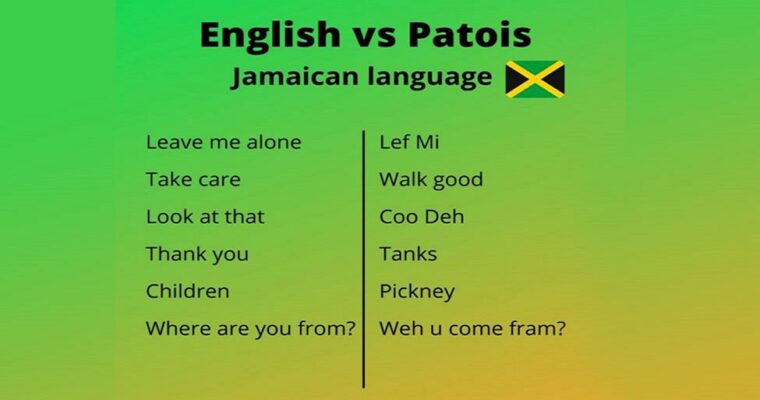What Language Do Jamaicans Speak? When it comes to languages spoken in Jamaica, the most widely spoken and official language is English. However, English in Jamaica has its own unique twist, often referred to as Jamaican Patois or Jamaican Creole.
Jamaican Patois: A Vibrant Language
Jamaican Patois is a colorful and expressive language that developed over centuries through a fusion of English, African languages, and various other influences. It is a language that reflects the rich cultural heritage and diversity of Jamaica.
While English is the language of formal education, government, and business in Jamaica, Jamaican Patois is the language spoken in informal settings, everyday conversations, and in the vibrant music and arts scene of the island.
The Origins of Jamaican Patois
Jamaican Patois has its roots in the English-based Creole languages that emerged during the era of slavery in the Caribbean. As enslaved Africans were brought to Jamaica, they brought with them their native languages, which blended with the English spoken by the colonizers and other European influences.
Over time, Jamaican Patois developed its own distinct grammar, vocabulary, and pronunciation. It is characterized by its rhythmic and melodic nature, with a unique cadence that sets it apart from standard English.
Understanding Jamaican Patois
For those unfamiliar with Jamaican Patois, it may take some time to adjust to the unique vocabulary and pronunciation. Here are a few examples:
- This is a common greeting that translates to “What’s going on?”
- “Mi deh yah”: This phrase means “I am here” or “I am present.”
- “Wah yuh seh?”: It is an informal way of asking “What are you saying?” or “What’s up?”
- “Bredrin/sistren”: These terms are used to refer to friends or close acquaintances.
- “Irie”: A popular term meaning “feeling good” or “everything is alright.”
While Jamaican Patois may seem complex at first, it is a language that reflects the warmth, friendliness, and vibrant spirit of the Jamaican people.
The Importance of Jamaican Patois
Jamaican Patois is not just a language; it is a symbol of Jamaican identity and cultural pride. It is deeply ingrained in the daily lives of Jamaicans and serves as a way to connect with their roots and express their unique cultural heritage.
Furthermore, Jamaican Patois plays a significant role in Jamaican music, particularly in genres such as reggae and dancehall. Artists like Bob Marley, Sean Paul, and Shaggy have helped popularize Jamaican Patois on the global stage, showcasing its richness and musicality.
Preserving and Celebrating Jamaican Patois
While English remains the dominant language in formal settings, there is a growing recognition and appreciation for Jamaican Patois. Efforts are being made to preserve and celebrate this unique language.
In recent years, there have been initiatives to include Jamaican Patois in educational curricula and promote its use in literature and media. This recognition helps to validate the importance of Jamaican Patois as a cultural asset.
Through the preservation and celebration of Jamaican Patois, Jamaica continues to embrace its linguistic diversity and honor its vibrant cultural heritage.
In Conclusion
Jamaicans primarily speak English, but their everyday conversations are often filled with the vibrant and expressive language known as Jamaican Patois. This unique language reflects the cultural richness of Jamaica, and its influence can be heard in the music, arts, and daily interactions of the Jamaican people. While English remains the language of formal communication, Jamaican Patois is an integral part of Jamaican identity and serves as a symbol of cultural pride.



